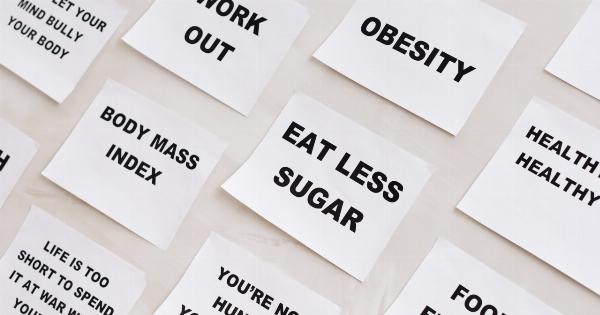Pregnancy is a time where women go through a lot of changes, both physically and emotionally. One of the most important aspects of pregnancy is eating a balanced and nutritious diet to ensure both the mother and baby are healthy.
However, there are many myths and misconceptions about eating habits during pregnancy. In this article, we will explore the truth about pregnancy eating habits.
Myth 1: Eating for Two
One of the most common myths about pregnancy eating habits is that you need to eat for two. This is not entirely true.
While it is important to consume more calories than usual to support the growth and development of the baby, it is not necessary to double your intake. In fact, consuming too many extra calories can lead to excessive weight gain, which can be harmful to both the mother and baby.
Myth 2: Avoiding Certain Foods Completely
Another common myth about pregnancy eating habits is that you need to avoid certain foods completely.
While it is important to be cautious of certain foods that may be contaminated or harmful during pregnancy, such as raw or undercooked meats, fish with high levels of mercury, and unpasteurized dairy products, it is not necessary to cut them out completely. Moderation is key, and it is important to discuss any concerns or questions with your healthcare provider.
Myth 3: Cravings Mean Deficiencies
Many women experience food cravings during pregnancy, and it is a common myth that these cravings are a result of nutritional deficiencies. However, there is no scientific evidence to support this claim.
Cravings can be a result of hormonal changes during pregnancy and may not necessarily indicate a nutritional deficiency.
Myth 4: Raw Fruits and Vegetables are Safer
While consuming fruits and vegetables is important during pregnancy, some women may think that raw produce is safer than cooked produce. However, raw fruits and vegetables may carry harmful bacteria such as E. coli or listeria.
It is important to wash all produce thoroughly before consuming, and to cook vegetables to reduce the risk of any harmful bacteria.
Myth 5: You Shouldn’t Drink Coffee
Another common myth about pregnancy eating habits is that you should avoid all caffeine, including coffee. While excessive caffeine intake can be harmful during pregnancy, moderate intake is generally safe.
The American College of Obstetricians and Gynecologists recommends consuming no more than 200 milligrams of caffeine per day during pregnancy, which is the equivalent of one 12-ounce cup of coffee per day.
Myth 6: Skipping Meals is Okay
Some women may think that skipping meals is okay during pregnancy, but this is not true. Skipping meals can lead to low blood sugar levels, which can be harmful to both the mother and baby.
It is important to eat regular, balanced meals throughout the day to maintain stable blood sugar levels and provide adequate nutrition for the baby.
Myth 7: Eating Spicy Food is Harmful
There is a common myth that consuming spicy food during pregnancy can harm the baby or cause preterm labor. However, there is no scientific evidence to support this claim.
Consuming spicy food may cause some discomfort or heartburn for some pregnant women, but it is generally safe to consume in moderation.
Myth 8: Eating Before Bed is Bad
Some women may think that eating before bed is bad during pregnancy, but this is not true. It is important to eat regular meals throughout the day and to listen to your body’s hunger cues.
If you are hungry before bed, it is okay to have a small snack to prevent hunger pangs and maintain stable blood sugar levels.
Myth 9: Vegetarian and Vegan Diets are Unsafe
Vegetarian and vegan diets can be healthy and safe during pregnancy, as long as they are well-planned and balanced.
It is important to consume a variety of foods to ensure you are getting all of the necessary nutrients, such as iron, calcium, and protein. It is also important to discuss any dietary concerns with your healthcare provider.
Myth 10: Gaining Too Much Weight is Necessary
While weight gain is a natural and necessary part of pregnancy, gaining too much weight can be harmful to both the mother and baby. It is important to maintain a healthy weight throughout pregnancy and to gain weight at a steady pace.
Your healthcare provider can provide guidance on healthy weight gain during pregnancy.





























